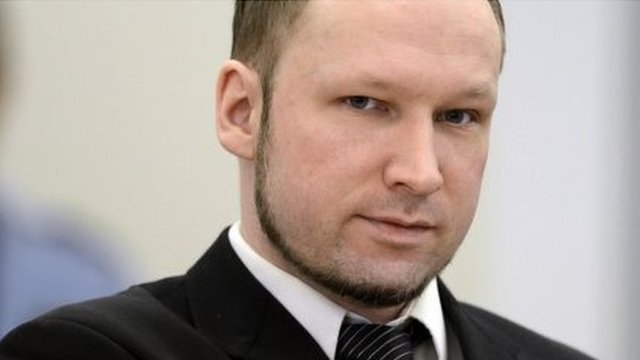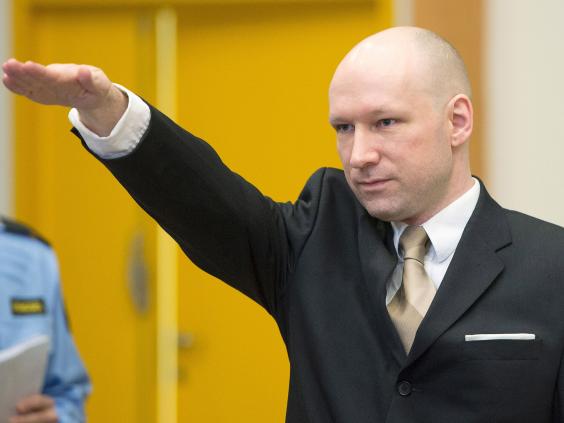This mass murderer lives a king’s life in Norwegian prison, but moves court to improve lifestyle!
Talk about reformative justice system! Here’s how a mass murder convict won a lawsuit determining violations of human rights against him in the prison.
The man in question is Anders Breivik, the Norwegian national and right wing extremist, who gunned down 66 youths and killed eight others in 2011 by detonating a van bomb while impersonating a police officer.

Following his conviction in an Oslo court in 2012, he was sentenced to solitary detention for a period of 21 years.
In March, 2016, he approached the prison court of Skien prison where he’s been kept since four years, for violation of human rights. As he entered the court, the man made a Nazi salute affirming his hardened belief in right wing extremism.

He complained of excessive use of handcuffs, being isolated in solitary confinement for five years and subjected to random strip searches, occasionally in front of female officers. He cited the violation of European Convention on Human Rights (ECHR). According to ECHR, prisoners have to be detained in conditions that do not exceed the unavoidable level of suffering inherent during detention.
After four appearances in the court in March, Breivik finally won the lawsuit against the Norwegian state. The court ruling observed that his detention amounted to “inhuman or degrading treatment or punishment”.
“His prison regime deviated so markedly from that enforced upon any other prisoner in Norway, regardless of the severity of their crimes, that it had to be considered an extra punishment.
The prison authorities had also not done enough to counteract the damage he had suffered from being in isolation,” the judge observed.
Interestingly, Breivik’s confinement optimistically suggests the importance of reformative justice instead of retributive justice.
Things that Breivik had access to in the prison:
1. Three cells—to sleep, to exercise and to study in
“Breivik is currently serving his sentence at Skien prison, where a typical cell looks like this” pic.twitter.com/ysdj2feYlF
— Gordon Swaby (@GordonSwaby) March 17, 2016
2. Allowed to cook as well as wash his own clothes
3. Regular contact with his family—including phone conversations with a female friend
4. Access to lawyers, a priest, health professionals and other prison staff
5. Allowed to build a gingerbread house as part of a prison competition
6. Newspapers, television and a PlayStation 2
7. Provided with the opportunity to play chess with volunteers—which he later declined
8. Has a computer (with no internet access)
Here’s the best part! What were his complaints?
1. The PlayStation 2 games were insufficient as they are “outdated . . . and not for adults”!
2. Unhappy about having to eat using plastic utensils
3. Having to drink cold coffee
4. Only having access to one of the three rooms in his cell at times
5. Not being allowed to use postage stamps
6. Only being allowed to use the egg timer while cooking
7. Not being allowed to use the oven to cook a frozen pizza
8. No internet access
Also read:
As India argues over Yakub Memon’s death penalty, terror raises its ugly head in Gurudaspur

OMG-inducing, share-compelling, like-attracting, clutter-breaking, thought-provoking, myth-busting content from the country’s leading content curators. read on...
